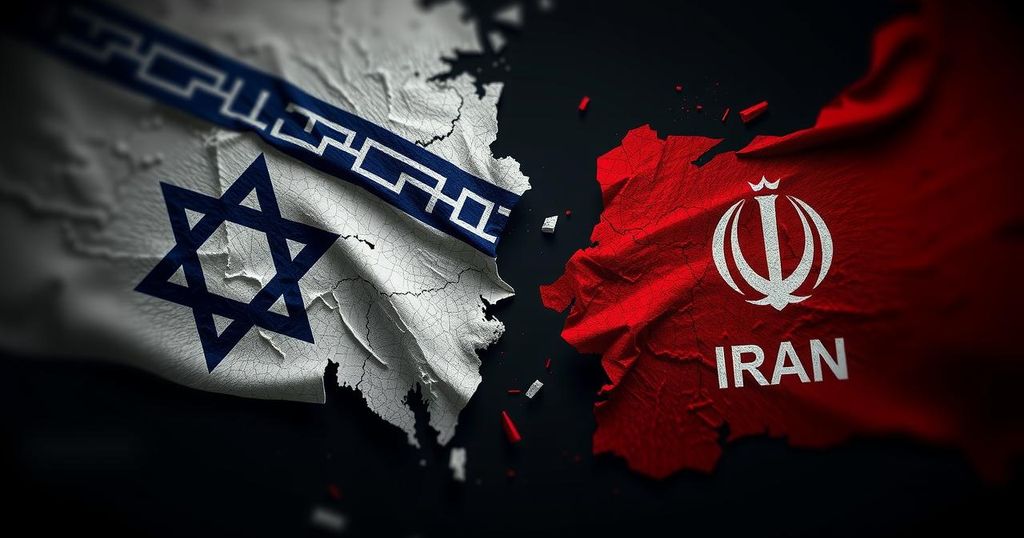Syria’s Assad Regime: A Delicate Balance Amid Escalating Israel-Iran Tensions
The Syrian regime under Bashar Assad is avoiding direct involvement in escalating conflicts in Gaza and Lebanon, primarily to evade Israeli retaliation and preserve its weakened authority. This strategy reflects Assad’s reliance on Iranian support while questioning his utility and reliability within the Axis of Resistance. The regime’s vulnerabilities inhibit its ability to engage militarily, leading to passive support for allied groups amidst ongoing Israeli strikes targeting them in Syria.
In the face of escalating Israeli-Iranian tensions, the Syrian regime led by Bashar Assad has adopted a cautious stance, striving to maintain its regime while refraining from direct involvement in the conflicts in Gaza and Lebanon. This decision comes amid fears of potential retaliation from Israel, which has intensified its military operations against Iranian and Hezbollah-affiliated targets within Syrian territory since the onset of the recent wars. With Syria existing in a state of severe weakness due to over a decade of civil war and economic distress, Assad’s non-engagement raises significant questions regarding his reliability as a partner within the Axis of Resistance—a collective of Iran-backed regional factions. Historically, Syria has served as a critical conduit for Iranian support to Hezbollah, but Assad’s current military capabilities are significantly diminished, leaving his regime vulnerable and wary of overstepping any boundaries with Israel. Analysts suggest that Assad’s reluctance to retaliate against Israeli strikes stems from a well-founded concern that an aggressive response could precipitate the collapse of his already beleaguered regime, particularly given that critical resources and support from allies, like Russia and Iran, are currently stretched thin by other conflicts. As certain analysts highlight, Assad’s weakened state and his increasingly tenuous relationships with both Hezbollah and Hamas could indicate a shift in dynamics, with his primary goal being the survival of his regime rather than active regional involvement. Although Syria continues to offer logistical support to these groups, it does so from a position of fragility attempting to avoid any decisive entanglements that could draw further Israeli ire. Ultimately, Assad’s approach reflects a delicate balancing act. While he seeks to maintain relations with Iran and its proxies, he must navigate the precarious waters of regional politics without provoking an overwhelming response from Israel. Hence, notwithstanding Syria’s historical role in the region, its present condition compels a strategic withdrawal from its formerly assertive position into a state of passive support for its allies, aiming primarily for self-preservation.
The ongoing dynamics in Syria are significantly shaped by the long-standing civil war, which has led to its economic deterioration and diminished military capacity. The Syrian government, once a significant player in regional affairs, is now largely viewed as a dependent entity under the patronage of Iran. Historically, Syria’s involvement in regional politics included strong ties with militant groups such as Hamas and Hezbollah; however, the Syrian conflict has altered these relationships as both parties navigate their interests cautiously amidst escalating Israeli military actions. The delicate state of Assad’s regime today reflects not only its military weaknesses but also the external pressures from both Israeli aggressions and the internal crises arising from economic challenges.
In conclusion, Assad’s regime currently operates under a precarious balancing act, aiming to preserve its power while managing external threats and internal vulnerabilities. The strategic choice to remain uninvolved in the conflicts in Gaza and Lebanon is driven by a dire need to avoid further destabilization of his regime. The insights provided signify that while Syria’s role in the regional struggle has waned, it still elements of a complex interplay between historical alliances and present-day challenges. Ultimately, Assad’s focus is on survival, raising the question of how long he can maintain this delicate equilibrium before external pressures force a change in strategy.
Original Source: www.arabnews.com




Post Comment